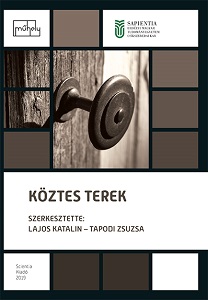Megtartó és nyomasztó örökségek térközében
In the Intermediary Spaces of Preserving and Oppressing Heritages
Author(s): Beáta Thomka
Subject(s): Language and Literature Studies, Studies of Literature
Published by: Scientia Kiadó
Keywords: Nobel Prize; in-between-ness; space of world literature; the duality of the home and the outside world;
Summary/Abstract: To interpret one of the conference’s discussion points, I based my paper on the essays of internationally renowned writers of the 20th-21st centuries. One of the theoretical basis is given by Pascale Casanova’s study entitled Literature as a World. The writers often make references to the differences and disadvantages of civilization that influence the development of national literature. The gap between the Western cultures of a rich literary tradition and the literature of colonized regions is always noticed by writers. In the evaluation of the ars poetica poems and the writing careers, the different nuances of the intermediary appear as a basic form of culture. Its variants may include dualities defined by the family’s linguistic, religious, and cultural aspects. Inherited and acquired languages also influence the coagulation of identity. Historical and political phenomena play an equally important role in the fate of individuals, generations, and communities. The situations caused by these factors, the crisis, and the ordeals will influence the self-perceptions and the artistic orientations either directly or indirectly. Adherence to the various national or spiritual communities, groups, and artistic trends takes place through the acquisition of identity models. Casanova’s conception of space of universal literature comes to reform the 19th-century idea of universal literature based on translations: “The mechanisms through which this literary universe functions are the exact opposite of what is ordinarily understood by ‘literary globalization’.” The authors of intercultural openness are searching for answers to the universal questions of human existence in their languages, based on their own artistic and historical experiences.
Book: Köztes terek (2019. április 26–27., Csíkszereda)
- Page Range: 15-25
- Page Count: 11
- Publication Year: 2020
- Language: Hungarian
- Content File-PDF

